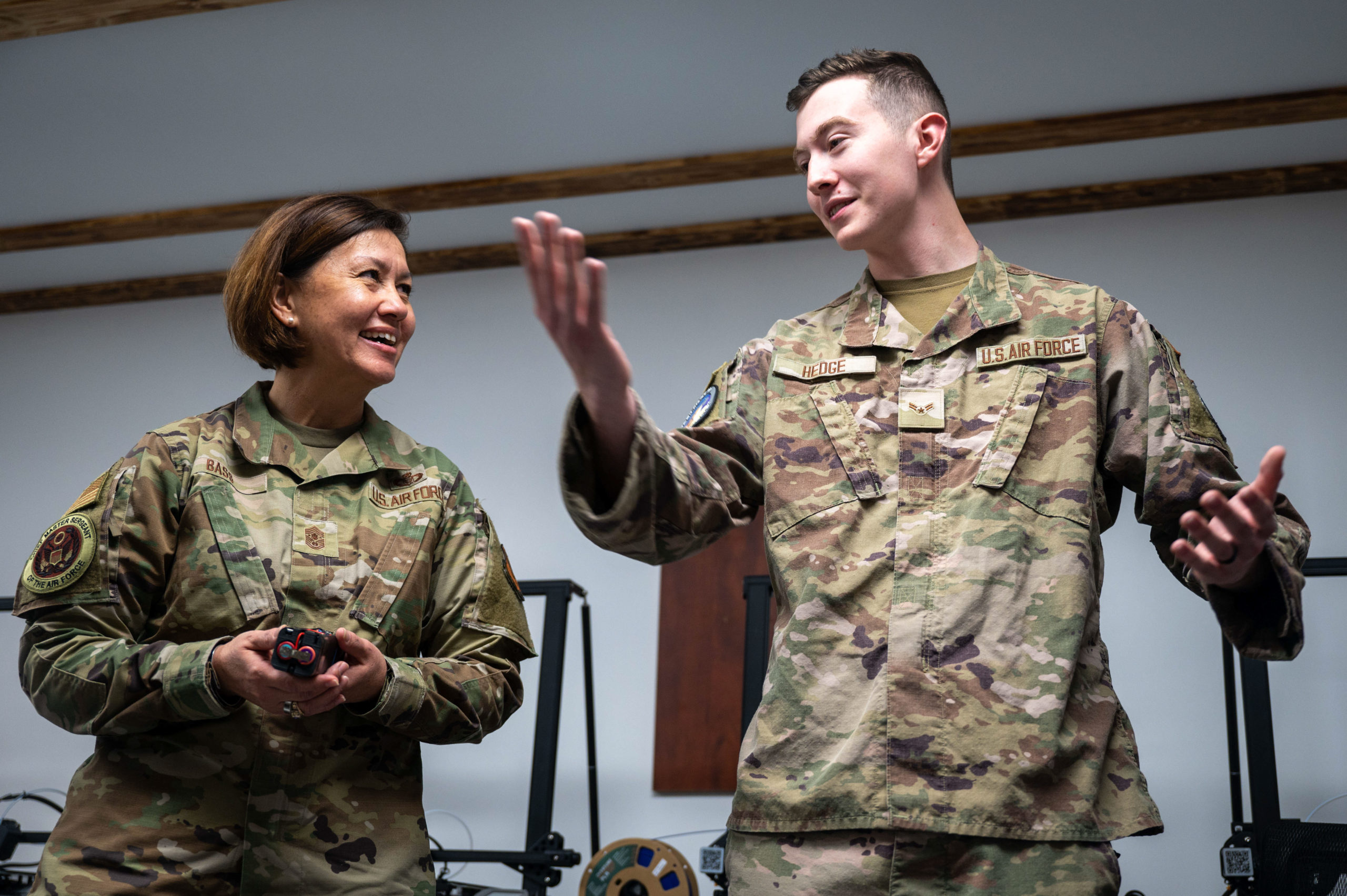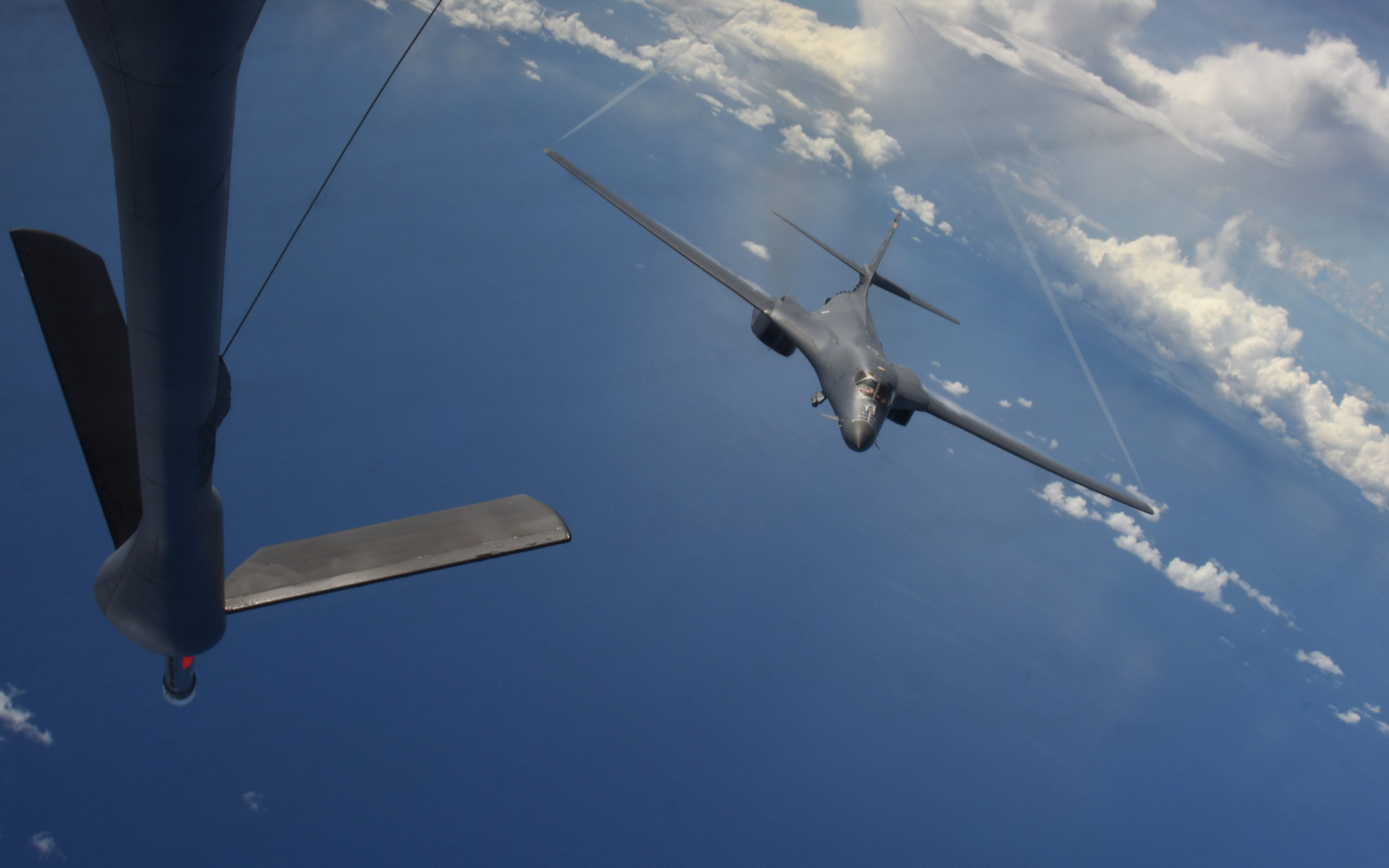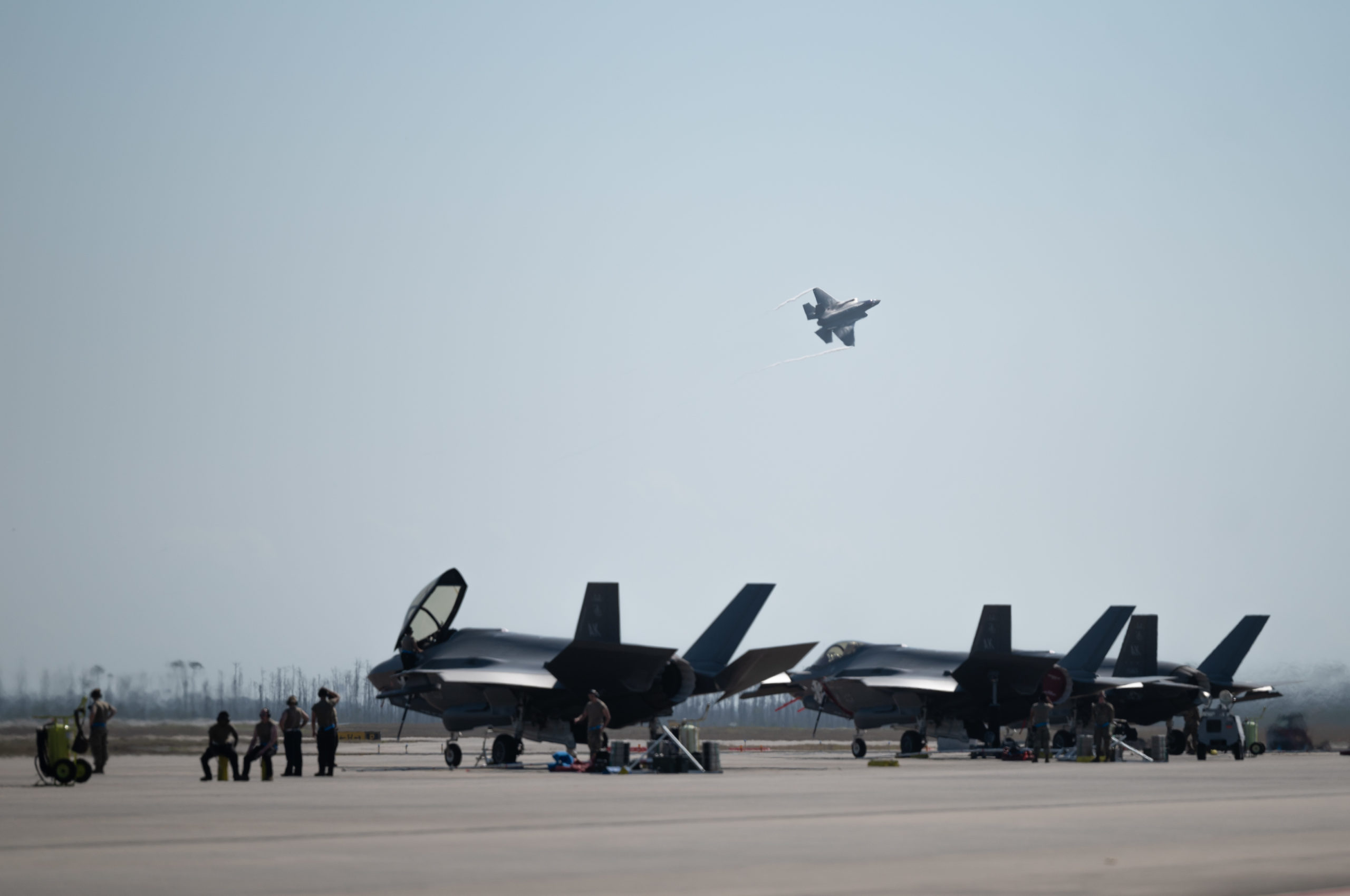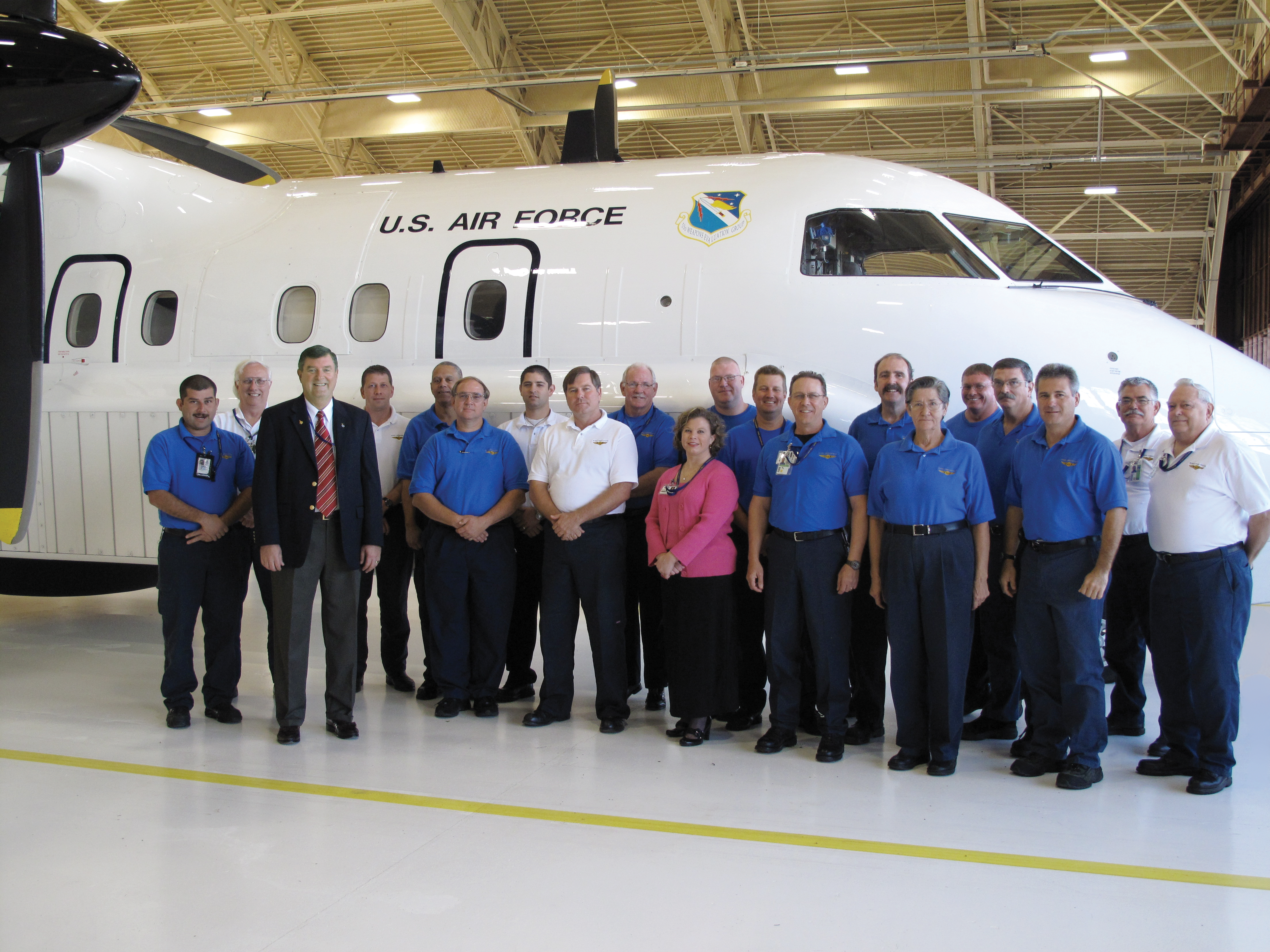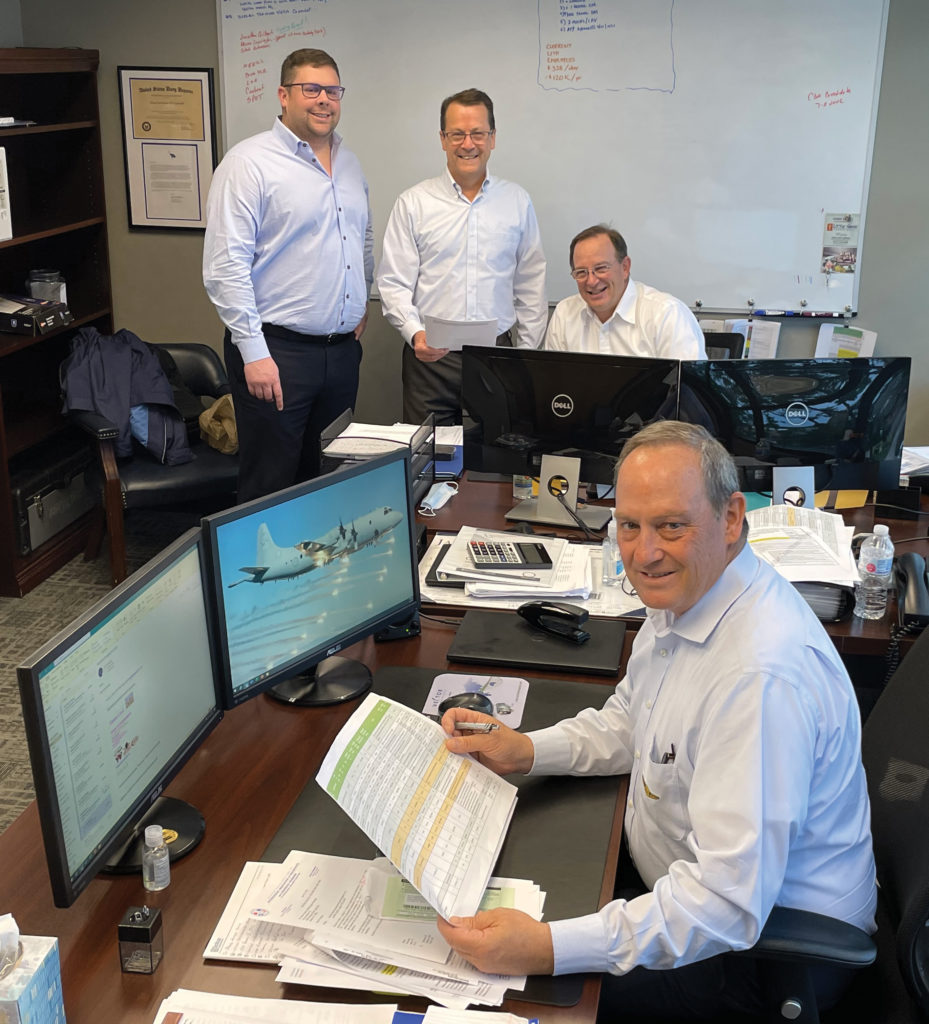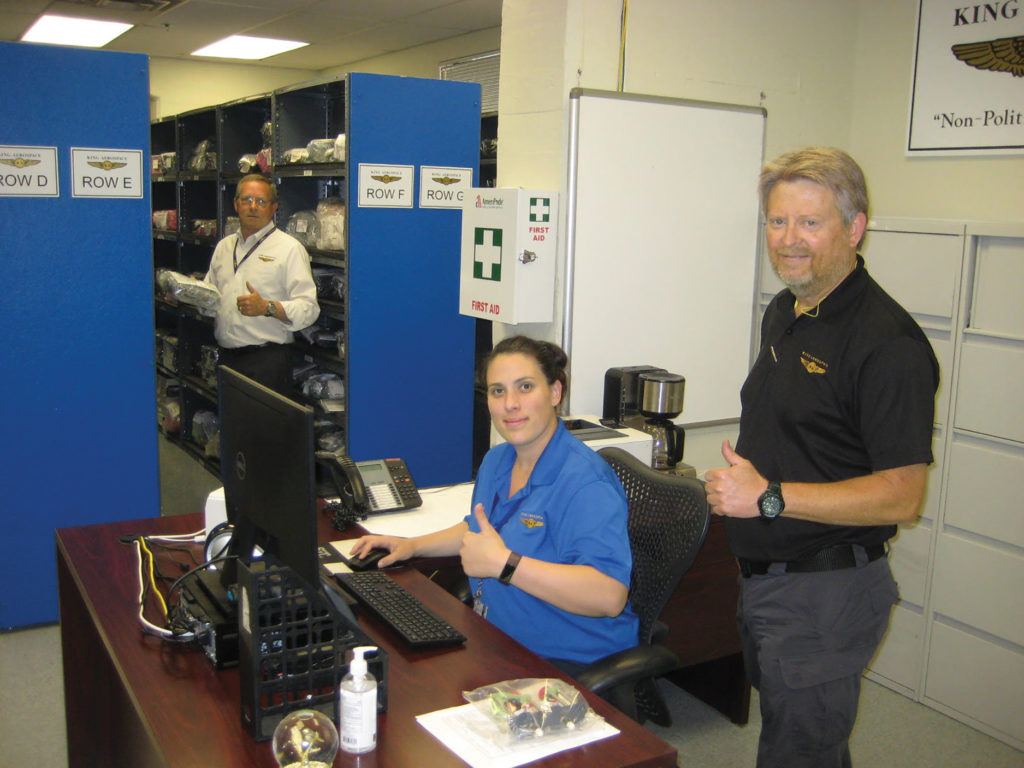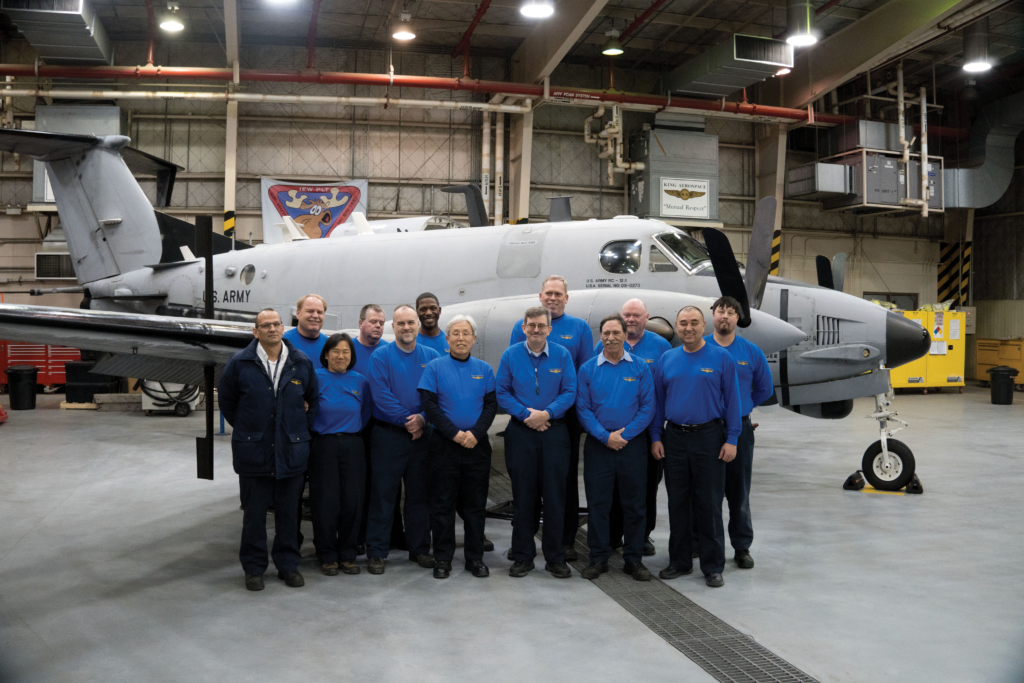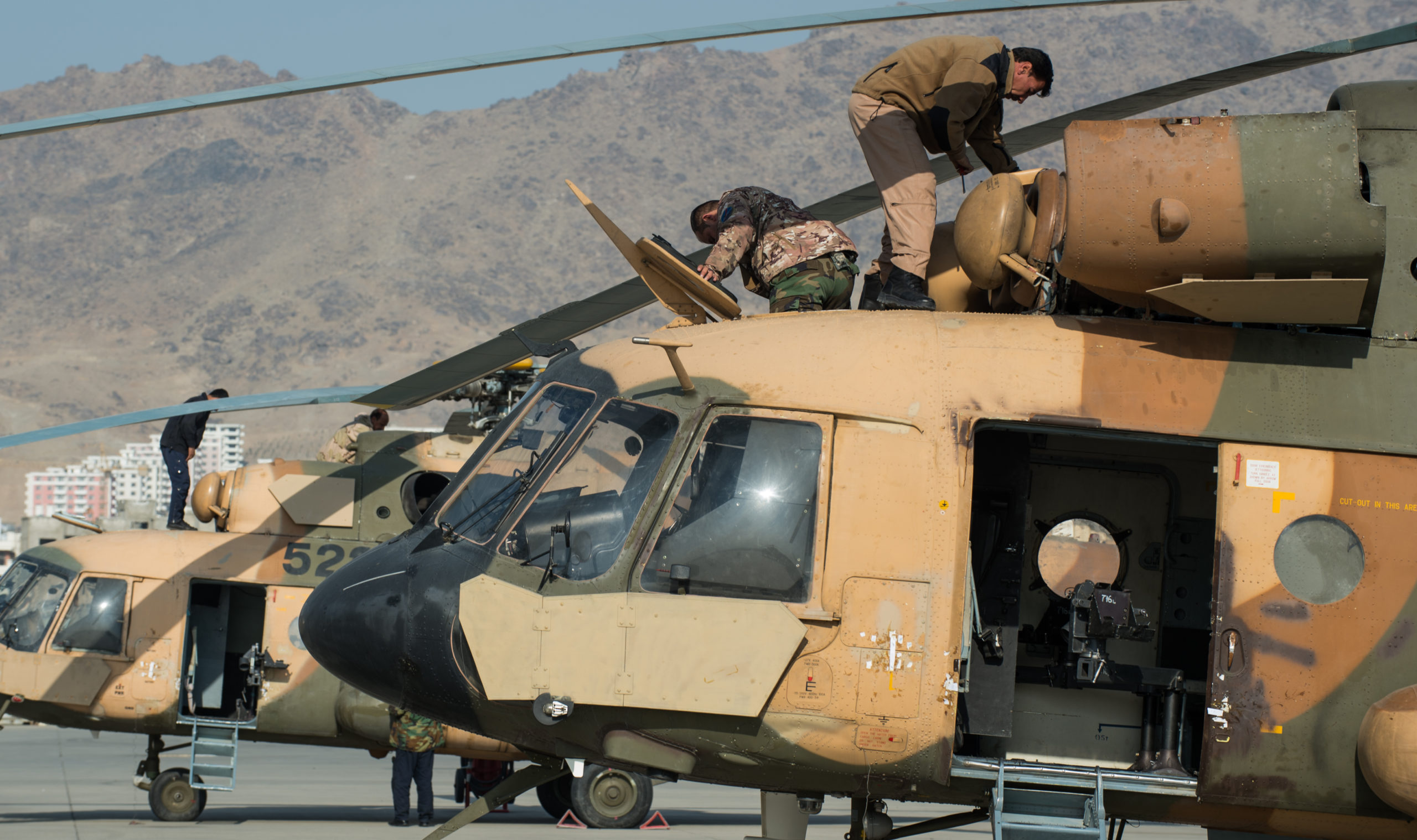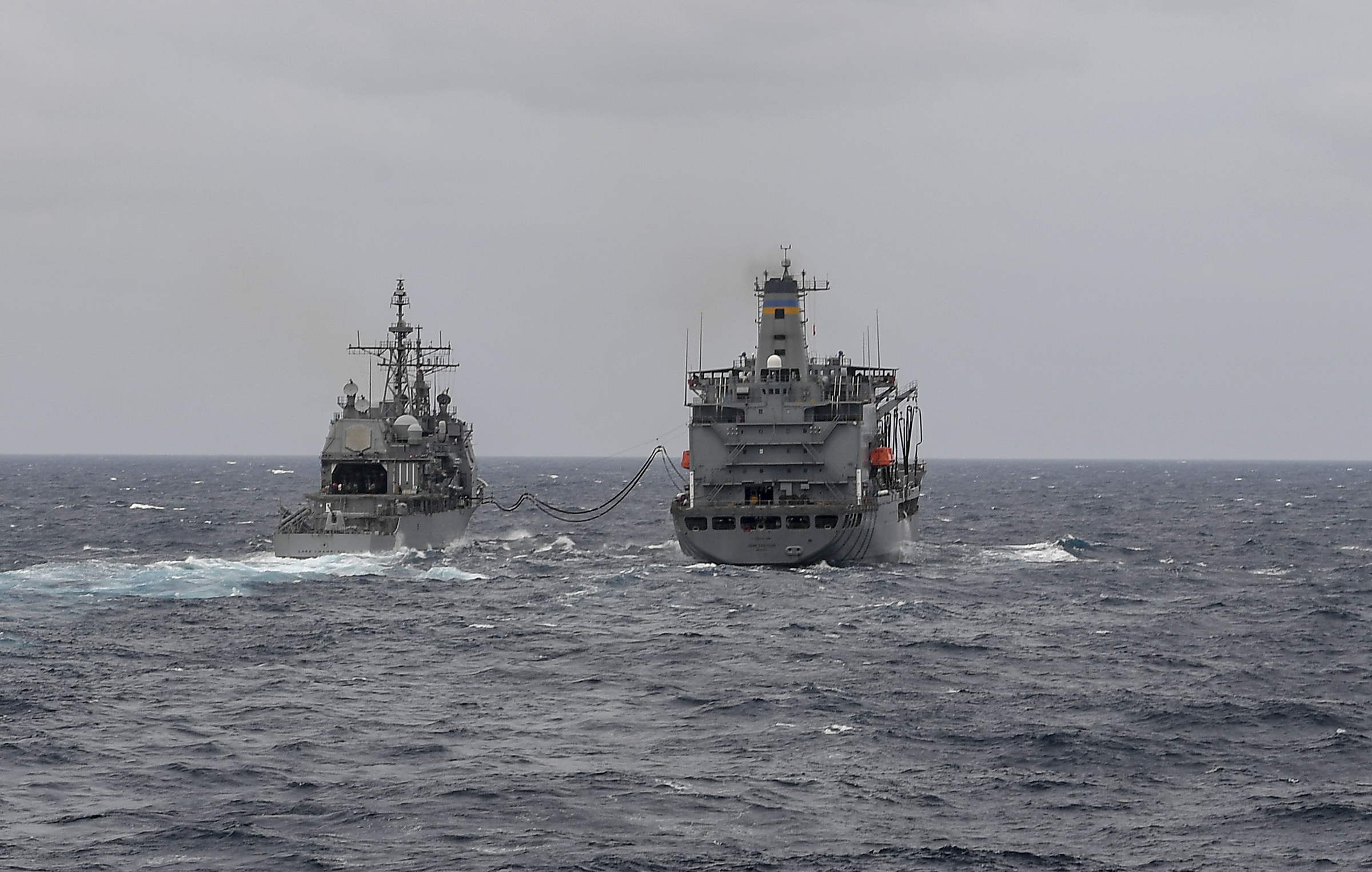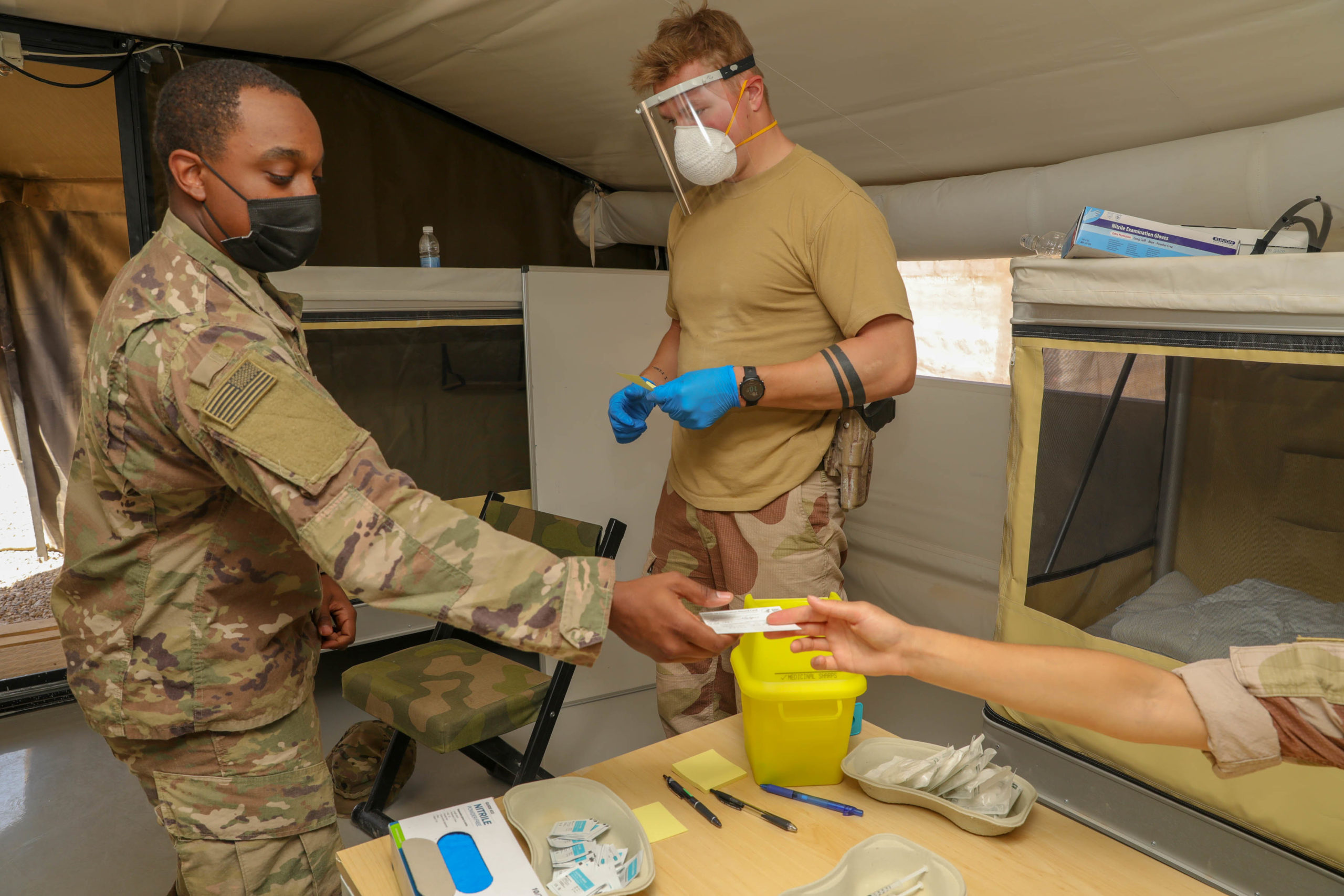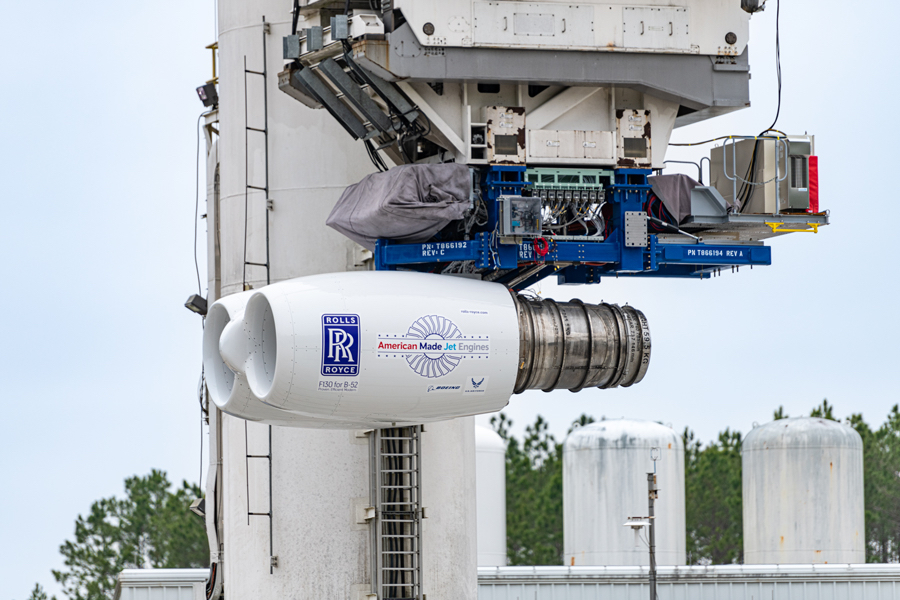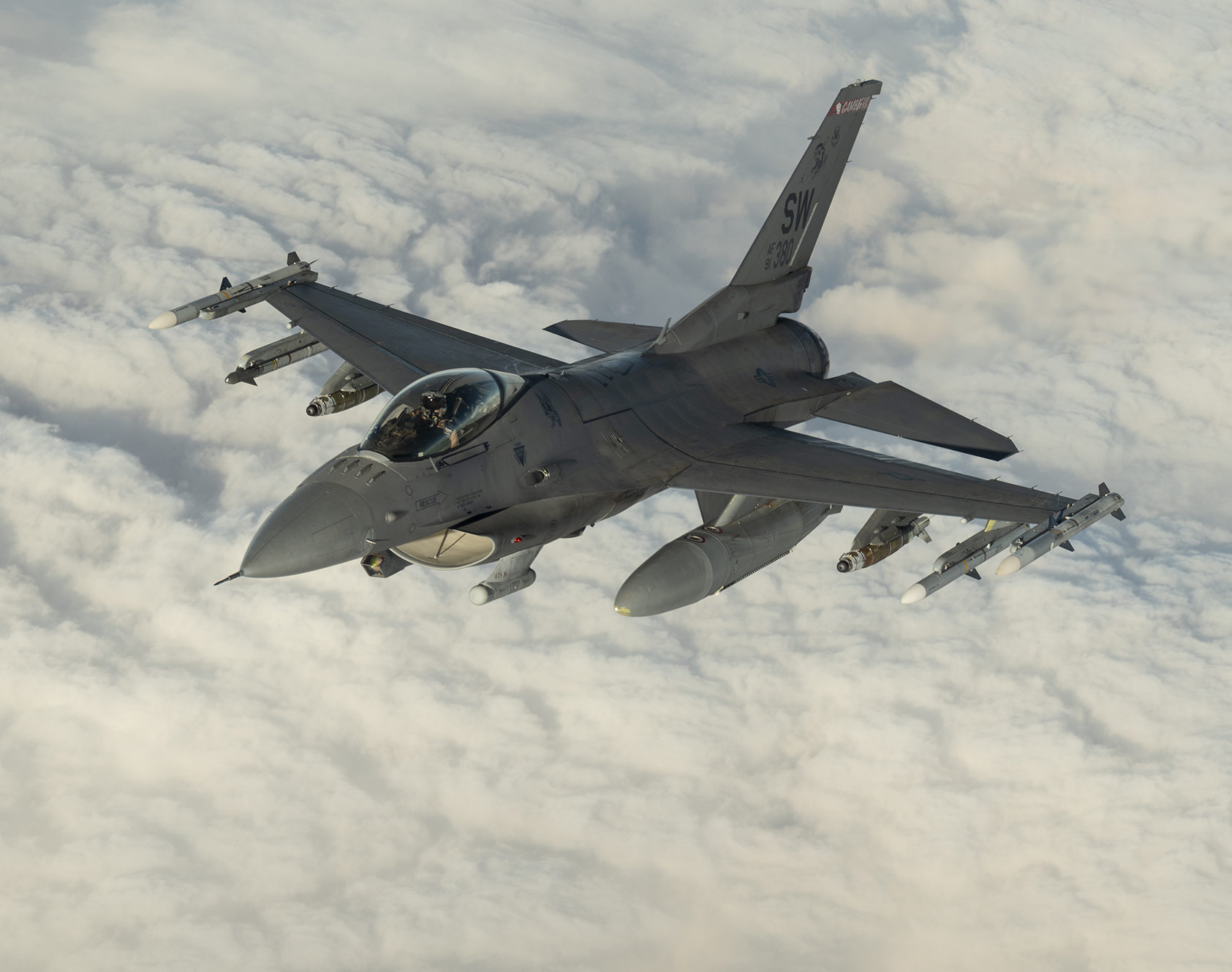Task Force 99, an Air Forces Central unit, has taken on outsize importance in U.S. Central Command’s efforts to promote itself as the most innovative and resourceful combatant command now that it can no longer draw the assets it had when the Middle East was America’s primary focus.
Now, after five months under the command of Lt. Col. Erin Brilla, the fledgling task force is shifting to Col. Robert Smoker.
“I want you to identify and break down barriers and unleash your members’ potential,” Lt. Gen. Alexus G. Grynkewich, AFCENT commander, said at the change of command ceremony Feb. 23 at Shaw Air Force Base, S.C. “Let your team run until apprehended. We’re excited to see how you carry Task Force 99’s momentum into the future.”
Under Brilla, Task Force 99 was established in October 2022 as part of a broader CENTCOM push among the Army, Navy, and Air Force to promote innovation, unmanned systems, and digital technologies such as artificial intelligence. Task Force 99’s focus is on adapting commercial unmanned aerial systems (UAS) to fit military requirements. It recently conducted its first operational test of a mapping drone, which was deemed a success. The unit is headquartered at Al Udeid Air Base, Qatar, so members cycle in and out based on their deployments.
That means a lot of turnover. Under Smoker, Task Force 99 will continue to try to cut through much of the typical red tape to fill positions and field new systems quickly.
“I personally, as the commander, work on taking away those blockers for people, and then everybody else just does what they’re supposed to be doing that day,” Smoker said. “We’re not hierarchical at all.”
The unit largely has no backup for individual roles. That is not entirely by design, as the team plans to double in the upcoming months. But currently with nine Airmen, including Smoker, the unit is one-deep in individual skills. Even when a member rotates out, the unit cannot fully replace those skills.
“We’re bringing people on to do the specific jobs,” Smoker said.
As for the colonel now in command, Smoker heard about the job from his perch at State College Air Station, Pa., where he most recently commanded the 193rd Air Intelligence Squadron. It was Smoker’s background that led him to the job.
Like Brilla, he learned about the opportunity to command the unit through the grapevine. Smoker served on Active Duty in the Air Force before moving to the civilian world and staying on in the Air National Guard. He is an Air Force Academy graduate who like many Airmen of his time had multiple deployments to CENTCOM previously in support of Enduring Freedom and Operation Iraqi Freedom. After joining the private sector, Smoker worked for a startup company that was bought by a large defense contractor and worked on projects fielded by DARPA.
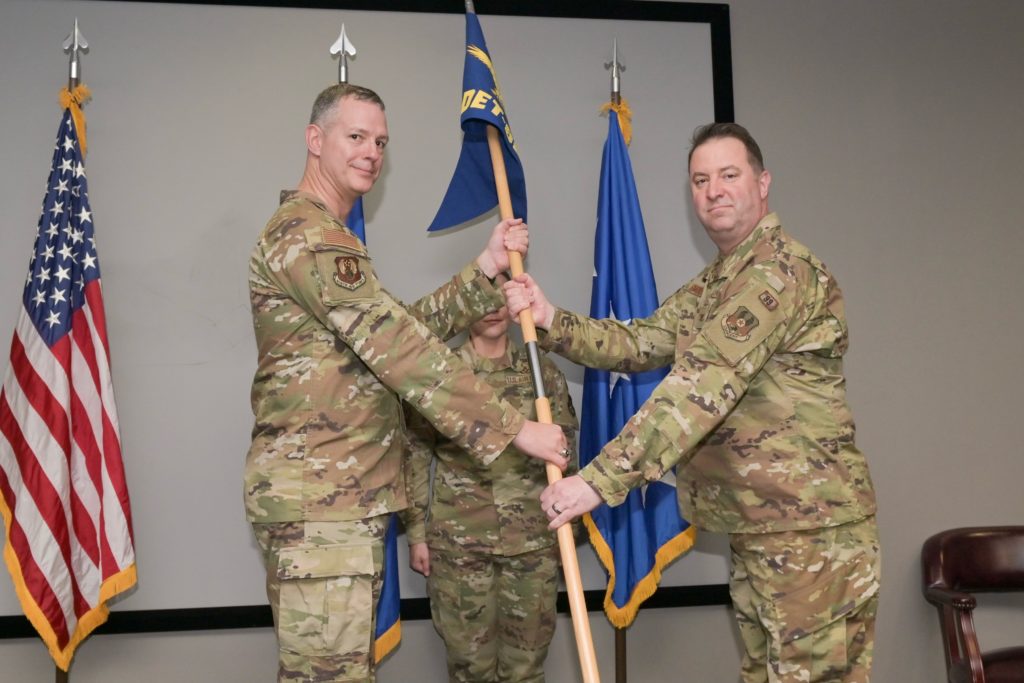
As someone with the civilian defense industry, from which Task Force 99 is intended to draw its commercial technology, Smoker says getting into Task Force 99 is somewhat similar to applying for a civilian job, with interviews and a questionnaire to complete.
“You can’t really tell, necessarily, based on someone’s military resume,” he said. “You need to know if they’re a good fit or not.”
Once they get the job, they’re expected to deliver, even it means asking for help from someone who previously would not been seen as a peer.
“It doesn’t matter if they’re a lieutenant colonel or an A1C,” he said, referring to an Airman First Class. “We’re weird. Everybody has their job to do and they do it.”
